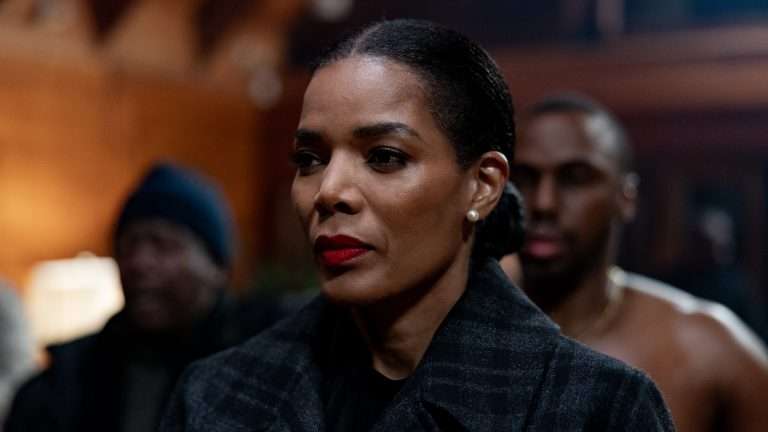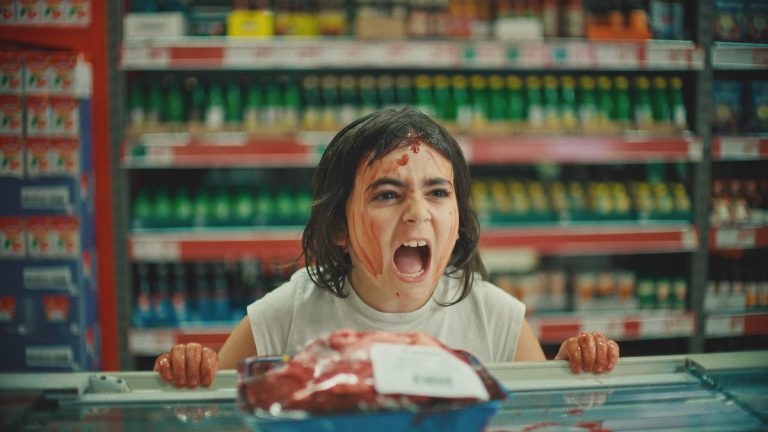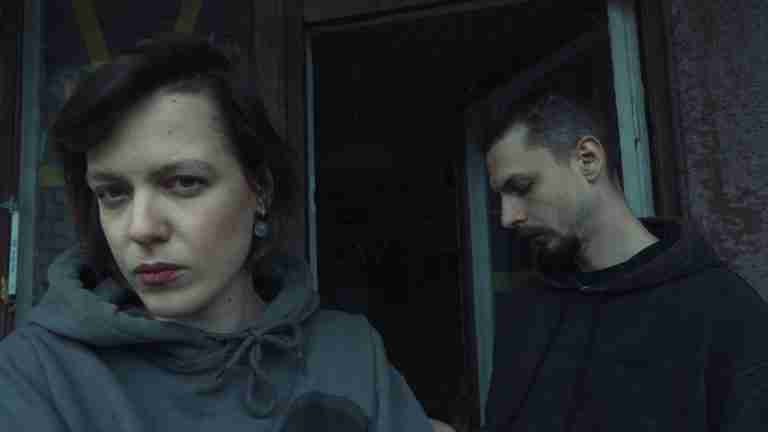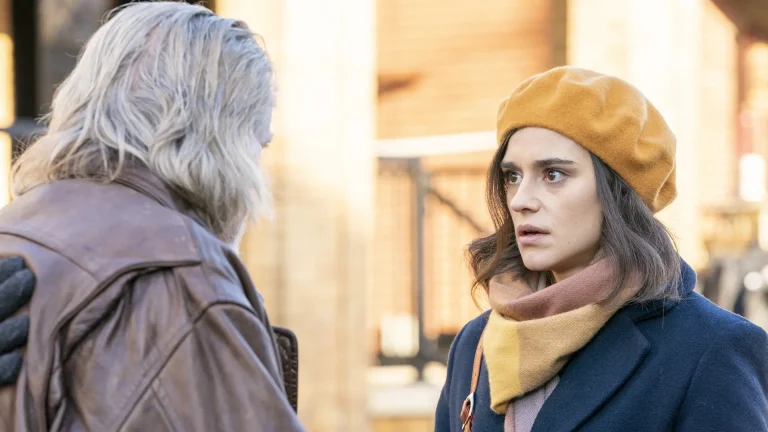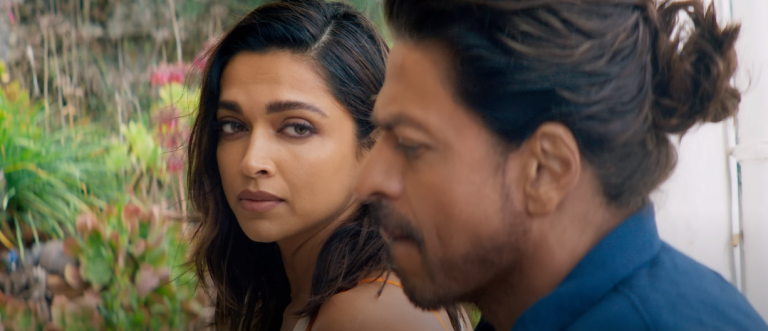There are so many thoughts Victoria Mapplebeck’s “Motherboard” sparks, from its narrative to its form, from the reality it presents and its deep-rooted resonance in a universal way, to the perception of time and its re-conception in a horizontal structure. And the comedy around all this.
Motherboard is a rare piece of experimentation with documentary as a platform, without leaning on banalities, and it is neither overdone nor overplayed. I first saw the film at CPH: DOX 2025, and it has stayed with me since. Certain moments return vividly, unprompted.
Over the course of 20 years, beginning with an unexpected pregnancy, Motherboard moves through snapshots of daily life in which we witness the becoming of a person, the director’s son, and her navigation of motherhood. It is autoethnographic, with the nuances of Victoria Mapplebeck’s life at its centre, yet it never lingers solely in that frame.
With “Motherboard” now in UK cinemas from 15 August, I got together with Victoria to discuss the making of the film, feminism, the decisions that shaped an exceptional documentary, and the humour that runs through it.
Sofia Topi: There is something recurring over the footage that you hold adamantly important. The distinction between Single vs solo parenting. I would like to ask you to explain your view on this and how it has grown through the making of the documentary.
Victoria Mapplebeck: I was brought up by a single parent, and I have lots of friends who are single parents. As you see from the film, Jim’s dad—I would have liked it if he’d wanted to be involved, but he didn’t want to be and didn’t feel comfortable with that—so I felt I was a lone parent. That sounds sad, but I think “solo mum” is a term actually coined by that new demographic of women who have decided to be solo mums from the start, using donor insemination or other routes.
Some of my friends’ children’s fathers have been really great. One of my single-mum friend had a great example of co-parenting, which you don’t often see. It was liberating for her: half the week she could be single, dating, or concentrating on work, knowing her son was well looked after. But I think that’s rare, even when fathers are involved.
In terms of feminism around family and parenting, I think it still tends to be women, particularly in heterosexual relationships, who take on the mental load of parenting, even in couples. But I signed up for it. I was really happy with it.
A friend said it’s the first feminist film she’s seen that also captures the joy of motherhood, because it is liberating. Yes, I paid the motherhood penalty in my career and had to leave filmmaking for a long time, but I chose it and loved it. Family life became my subject.
In the first half of my career, I didn’t make autobiographical films, although looking back, you can see that I made quite a lot of films about motherhood in one way or another. So yes, I think it’s an important distinction: I was a solo parent rather than just a single parent.
Sofia Topi: You took up this journey at the age of 38, having already an established career in the film industry, which you decided to jeopardise to raise your child. What do you think led you in your career that prepared you or equipped you, or motivated you in picking up a smartphone and starting to shoot yourself?
Victoria Mapplebeck: I was one of the first self-shooters in a TV documentary. Previously, there would be large crews, even in very intimate situations, nearly always all male. I was part of a wave in the early 90s, when Channel 4 wanted to reinvent documentary form. I loved self-shooting for the intimacy and for acknowledging the relationship between you and the subject.

You didn’t interview your subjects; you spent time with them, which is a different sensibility that has stayed with me. I’ve been shooting that way for 30 years. Then came the transition from a large camera and kit to the phone in my pocket. That transformed the way I filmed. I always had it with me and could capture things as they happened. Previously, I filmed on schedule, in production. With smartphones, you can be in a 24/7 rolling production.
I remember being in the park where Jim grew up. A boy, about seven or eight, climbed a tree, stood on top, raised his hand, and said, “I’m on top of the world.” I captured it. You can’t just get moments like that, especially in times of ‘helicopter’ parents freaking out about any possible risks. That’s the joy of smartphone filmmaking—capturing beautiful observations as they happen.
In cancer treatment, I didn’t have to ask for permissions that might take months. I’d turn up with my phone, say I was documenting my treatment for a film, and nobody said no. In selfie mode, I was very careful about not filming others in vulnerable positions. When I couldn’t press record because I was going through the CT scanner, the radiographer would press record for me.
Nobody is intimidated by a phone. It’s transformed the way I shoot, and I won’t go back to bigger kits. Lenses might be better in low light, but you can get extraordinary results on a smartphone.
Sofia Topi: We do see a handful of intimate or vulnerable moments of you during the 91 minutes of the film, you maintain a very honest and unapologetic camera to yourself. Looking back at this experience, and considering the shared developed familiarity we have with filming ourselves or looking back at ourselves, what do you find still perplexing when it comes to exposing or revealing our domestic environments and everything that comes with it? Or do you think we have lost any sensitivity towards our privacy?
Victoria Mapplebeck: I think it was important to me to show a 3D version of parenting and of Jim’s experience of growing up in this kind of small family, including the difficult, vulnerable bits. I’m 60 and I’ve made quite a lot of autobiographical shorts. I studied fine art and filmmaking, so I’m used to and love autobiographical storytelling. That was a much bigger deal with Jim.
The previous short films I made that ended up as storylines in Motherboard had finished by the time Jim was 13. Up until then, we were very close and loving, and there hadn’t been discord yet. That separation and conflict came naturally in his teen years, when you need to detach, but it was made even more painful and challenging because I’m a lone parent, and then I got the cancer diagnosis when he was 14. He started pulling away because he was so frightened of his dependency on me.
Probably the most exposed or vulnerable bit for Jim was the phone rail we had in lockdown. It came about because I was making an immersive sound piece at the time and recording calls, like those with my mum when we couldn’t see each other. They were very funny, but led to some awful exchanges of rage. When I played the recording back to Jim after we’d made up, we both knew it was strong, but Jim feared people would hate him. He’s always had the power of veto on the whole project. We show him assemblies and rough cuts, and he’s part of the process to the point he almost feels like a co-creator.
The difference between me and social media mum influencers posting footage without full consent from their kids or teenagers is that we had the luxury of time. We had three years, two of them full-time in the edit, to decide whether that scene stayed in. At a rough cut test screening, Jim was amazed by the love the audience felt for him. He then said, “Yeah, use it, Mum, because if you’re going to make a film about parenting, you’ve got to show the difficult stuff as well.” Jim’s only 21 now. I don’t know if I could have been this open about my life at that age.
I’ve had a lot of experience, and many of the short films have been out for seven or eight years. We’ve had audience feedback and a lot of time before the feature was released to test what it’s like putting such a personal story in the public realm.
When you’re making autobiographical work, it’s important not just to expose everything. You have to have a director’s head and cut. It’s not good just because it’s emotional. It has to be there for a reason. You’re telling a story. There’s a grammar to the film. Some of the best directors I can think of who’ve made autobiographical films also have that skill of telling a story.
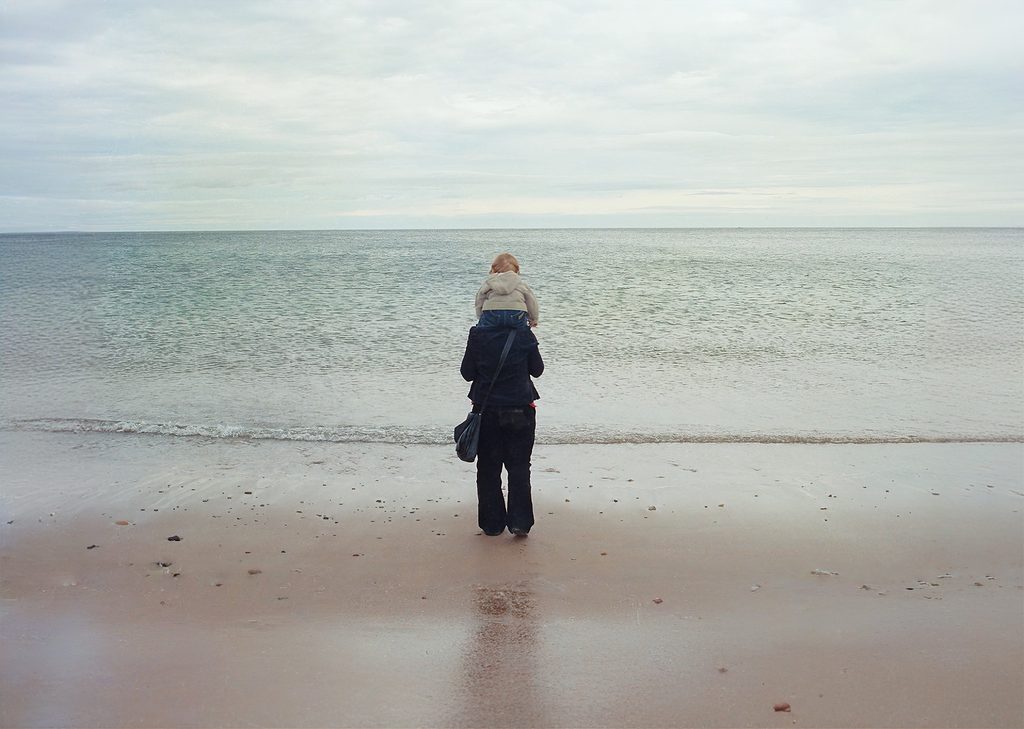
Sofia Topi: Although I understand, generally speaking, that humour is primarily a personal trait, which happens that both you and Jim, your son, share, from your position now as a film director and editor, how do you see its value in documenting realities that naturally have leanings towards drama?
Victoria Mapplebeck: I think humour is really important. It’s such a visceral documentary, and you see us going through some really tough times, particularly around my cancer treatment. Jim was too young to come to treatments with me, but he sometimes wishes he had. I tell him honestly that what he got me through it was his sense of humour and the fact that we would joke about it.
Particularly in the last half hour, humour is even more important. Jim and I are different in many ways, but we share a sense of humour. I loved the technique I came to in my late teens, where I turned the camera into selfie mode and both of us were subjects. He breaks the fourth wall by rolling his eyes at the audience about how blocked his mum is, still saying she’s going to lose weight, finish the film, and start dating again.
Sofia Topi: There are many exemplary works from filmmakers, even from past decades, who approached filmmaking in a diaristic way and experimentation, you are also suggesting. Do you have any contemporary documentary works that you admire and are willing to share with us?
Victoria Mapplebeck: I’ve struggled to find documentaries in this genre because it almost feels sort of antithetical to the canon. A lot of the best sort of feminist memoir explorations of motherhood were either in written form, in publishing, or in dramas.
Sarah Polley’s “Stories We Tell” was a huge influence—an incredibly exposing story told with all the skills of an experienced director. It’s a really powerful film.
I also watched an A24 feature doc at Sheffield DocFest called “Ivan’s Not an Idiot.” I loved it because it’s billed as a cancer comedy. It’s about a guy who, by the time he’s diagnosed with stage four colon cancer at 50, decides he’s going to make the first cancer comedy. He’s incredibly charismatic and funny, with real gallows humour. It goes slightly too far, but it felt fresh and challenging. I’m interested in the ways we represent chronic illness and cancer, and it felt innovative.
For representations of parenthood, much more drama has inspired me. Pamela Adlon’s “Better Things” was the first time I’d seen a single mum portrayed as cool (sexy, funny, irreverent with her kids). The kids have complicated issues. It’s brilliant. I’d love to meet her. She did a brilliant job.

